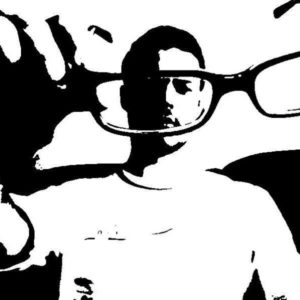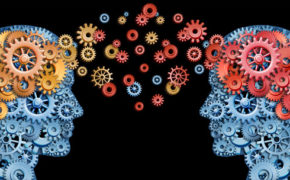The Main Reasons Why INTJs Might Be Mistaken For Psychopaths
Have you ever been in a situation where you suspected yourself of sociopathic or even psychopathic tendencies? Did you think there was something wrong with your personality or emotional understanding? Do you find yourself outside of your society’s expectations, unable to fit in the emotional framework provided by the world around you?
Were you relieved to learn that you’re an INTJ, and your brain works the way it should?
One of the more complex issues faced by INTJs is that of being mistaken, either by others or by themselves, for a psychopath. The main reason for this problem is the lack of understanding about what a psychopath or a sociopath really is, their differences and similarities, and how to identify them. Let’s dig into what makes a psychopath or sociopath what they are.
Behavioral Traits
Let’s start by differentiating psychopaths and sociopaths. Sociopathy and psychopathy are listed separately in the fifth edition of the Diagnostic and Statistical Manual of Mental Disorders (DSM–5). Both disorders are linked to Antisocial Personality Disorder (ASPD) and share these behavioral traits:
- A disregard for laws and social standards;
- A disregard for the rights of others;
- A failure to feel remorse or guilt;
- A tendency to display violent behavior.
Bonn, S (2014) Psychology Today
These traits are relatively well-known, leading to a tendency to use the two terms, psychopath and sociopath, interchangeably. There are key differences between the two, however.
Sociopaths tend to be:
- Nervous, unstable, and easily agitated.
- Easily distracted by their own emotions.
- Restless and impulsive. It’s hard for a sociopath to stay in one place for a long time or hold a steady job. Also, crimes committed by sociopaths are not generally planned in advance.
- Emotionally unattached. Sociopaths regard most people as unimportant but may form an attachment to a specific person or group that shares their values. This is a common reason for sociopaths to fall into organized crime, gangs, and other such factions.
- Influenced or “created” by situations. It’s important to note that sociopaths commonly suffer traumatic experiences through their childhood years such as violence, neglect, or abuse that cause or strongly influence their inability to create or maintain emotional connections.
Psychopaths tend to be:
- Unable to feel empathy. Psychopaths that study psychology and may be competent at expressing empathy, despite being unable to feel it. Psychopaths are often talented at manipulation and mimicry, presenting themselves as normal, so it can difficult to identify a psychopath from the outside. In this way, the main difference between a sociopath and psychopath is that a psychopath doesn’t feel the emotions they show. Some psychologists believe this is caused by the psychopath’s genetics, impacting the brain’s ability to produce or process certain chemicals or hormones.
- Charming and likable. Psychopaths can develop excellent acting skills in order to present themselves to the world with whatever personality suits their purposes. Common and effective tactics include telling impressive stories, expressing common interests, and showing/claiming exceptional intelligence.
- Manipulative and demanding. Owing to a lack of concern for others and their needs, many decisions in a psychopath’s life are dictated by their own desires. To achieve their own goals, they will attempt to win the trust of those around them by telling fake secrets or solving their problems. Then the psychopath will later ask for “favors” and remind others of help rendered in the past in order to get what they want.
- Able to plan ahead. This ability is what makes it possible for psychopaths to complete their education, maintain lucrative employment, and create long-lasting relationships, or even families. The challenge for a psychopath is to do these things without allowing others to discover their psychopathy. Some may choose to commit dangerous and sometimes brutal crimes, planning each step in advance as if it were a game. These are not crimes of passion, performed on the spur of the moment, but the steps of an intricate dance known only to the psychopath himself.
INTJ and Psychopath; Similarities
As I’m sure you’ve gathered by now, INTJs and psychopaths are similar in some ways. People might mistake an INTJ for a psychopath because of these similar personality traits:
- A death stare;
- Fond of dark humor;
- A lack of emotional expression in public;
- Intelligence;
- Enjoy critical analysis;
- Talented at manipulation;
- Always plan ahead.
INTJ or Psychopath; Differences
- INTJs feel emotions, but choose to hide them. In most situations, INTJs will choose not to show emotion in the presence of Ordinary People. An INTJ may choose, however, to reveal some emotion to close friends or a significant other. Due to misunderstandings or bullying as a child, if the INTJ has learned emotional intelligence at all, it will be through critical study. Still, the INTJ’s emotional expressions will be more real and natural than the psychopath’s, as the emotions themselves are genuine.
- Psychopaths are incapable of genuine personal connections. A genuine interpersonal connection would require empathy, which would actually reduce the psychopath’s ability to effectively manipulate others. This inability to feel empathy leads to a lack of empathetic understanding. (“Why should I feel upset when someone is crying? It doesn’t benefit me.”) A psychopath would, therefore, need to plan empathetic actions and reactions in advance, which can give those reactions the appearance of shallowness or falsehood to the emotionally perceptive.
- INTJs have strong ethical/moral standards. These standards are likely different from those of society because they are based on an understanding of moral principles rather than popular opinion. For example, INTJs hate pretending to be someone they’re not. For this reason, many INTJs struggle in situations where they need to act like they care when they really don’t. Also, though INTJs judge the people around them, they usually do so silently, and will only speak their judgments when specifically asked. Their direct manner and blunt honesty can hurt the people around them, not because the INTJ meant to do so, but because the INTJ doesn’t always understand the effect of such statements in social/emotional situations.
- Psychopaths don’t nurture ethical values. Without the ability to feel or understand empathy, there’s nothing in the psychopath’s mind to stop him from hurting others. Even if the psychopath doesn’t participate in an illegal activity and is instead engaged in, for example, business; the psychopath may completely ruin an opponent and force him into bankruptcy without ever feeling that what he had done was wrong.
- INTJs enjoy fixing things. While INTJs enjoy dark or “black” humor, the greater pleasure often comes from improving or fixing the things and people around them. It is only when an INTJ is convinced that improving things is pointless and depressing that they become cynical to the point of morbidity. An insult for the sake of an insult holds no appeal – it is only when the insult is witty and intelligent that it is worthwhile.
- Psychopaths enjoy power. Psychopaths also enjoy dark humor, but for a different reason. Without the capacity for empathy, a psychopath is likely to be drawn to the most effective methods for gaining power over the people around them, including but not limited to mocking or offending them. Public humiliation is a powerful tool in the hands of a skilled manipulator.
INTJs and psychopaths have much in common and may appear to act similarly in certain types of situations. The significant differences in their behaviors are primarily motivation-based, and attention to detail is necessary in order to tell them apart.
It should be noted that “INTJ” is a typology, not a diagnosis. A typology is a classification, in this case indicating the way in which a specific person processes and reacts to external stimuli. In contrast, psychopathy is a personality disorder which can be clinically evaluated and diagnosed by a psychiatric professional.
Grammar and punctuation errors eviscerated by Elle Taylor
























